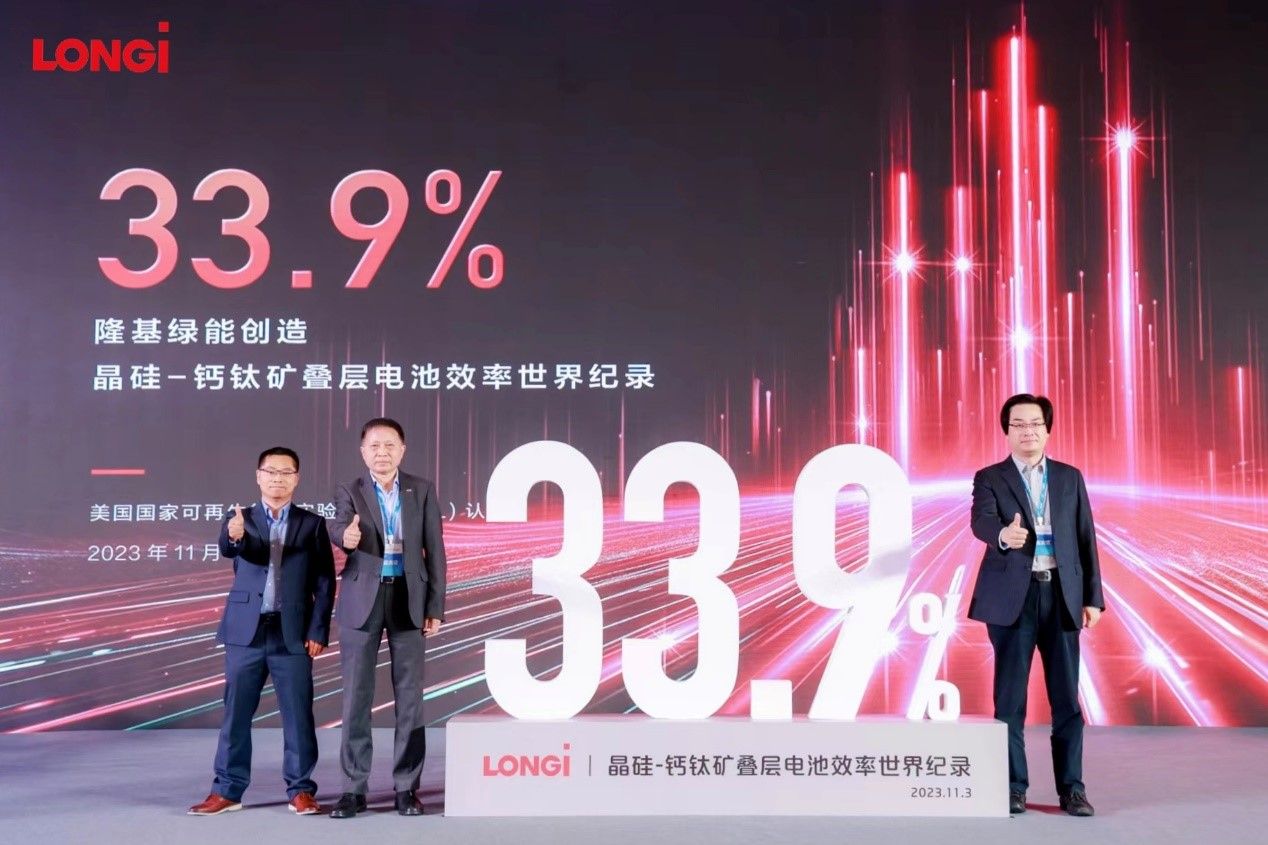Doggydogworld
Active Member
Even 30% efficient panels would only produce 10 kW of the 120 kW consumed at highway speeds. And that's 10 kW at high noon on a cool, cloudless day in the southernmost US states. Far less kW at most times in most areas and 0 kW at night.Then, it is not even far-fetched, considering actual practical evolution of perovskite and others in solar panels:
We may not be too far away from being able to top semi-tractors and trailers with actually usable and practical solar power generation to produce longer ranges so batteries need not do the entire job.
LONGi sets a new world record of 33.9% for the efficiency of crystalline silicon-perovskite tandem solar cells -LONGi
LONGi announced today that it has set a new world record of 33.9% for the efficiency of crystalline silicon-perovskite tandem solar cells.www.longi.com
That mostly came from dumping AC induction in favor of permanent magnet motors and upgrading power electronics from IGBT to SiC MOSFET. Nickel-based battery improvements have been glacial. Maybe 1-2% a year. LFP/LFMP/etc. improved a bit faster. They're also safer and much more cost-effective over thousands of cycles. Life cycle cost is what fleets care about.My reasoning is based on my 2014 P85D range of 265 miles my 2022 S Plaid range of 396 miles in the same physical space. Has that rate of improvement suddenly stopped?
The pack-level weight advantage in heavy duty (e.g. Chinese buses) is not that large. Maybe half a ton for a 300 mile Semi. Once you match diesel payload there's little benefit to going further for companies with mixed fleets. Which will be almost all of them the rest of this decade.Sure 300 miles of range is sufficient, but even then they will want the maximum payload possible. Will the cheapness of LFP offset the reduced revenue from a lower payload capacity?


